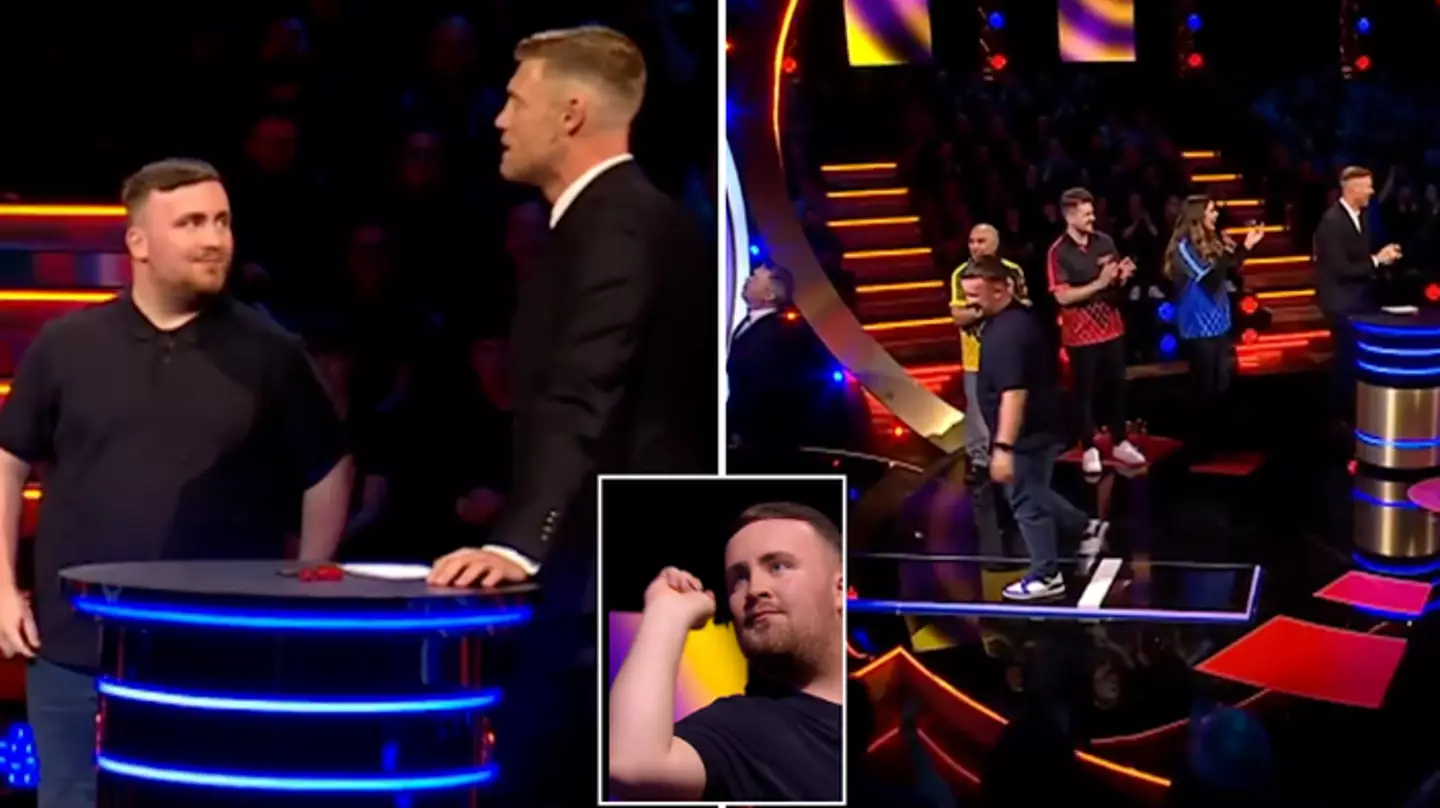
The recent reboot of the iconic game show “Bullseye,” hosted by Freddie Flintoff, has sparked a wide array of reactions from viewers. While many were excited to see the beloved darts-themed quiz show return to their screens, there was a notable wave of criticism regarding certain aspects of the revival. The episode, which aired as a festive special, aimed to evoke nostalgia while introducing a fresh take on the classic format. However, it seems to have divided opinions among fans.
One of the most prominent complaints centered on the studio audience’s behavior during the show. Many viewers felt that the constant clapping, cheering, and general noise from the crowd were overly intrusive and detracted from the experience. Fans of the original show, which aired from the 1980s through the 1990s, commented that this boisterous atmosphere was a departure from the more subdued and intimate tone they associated with “Bullseye.” For some, this change made it challenging to fully engage with the gameplay and the contestants’ interactions.
Freddie Flintoff, who made his hosting debut for “Bullseye” with this special, brought his trademark charm and enthusiasm to the role. As a former cricketer turned television personality, Flintoff has a strong presence on-screen, and his love for darts and admiration for the original show were evident throughout. Taking over from the late Jim Bowen, the show’s iconic host during its original run, Flintoff had big shoes to fill. While many viewers appreciated his efforts to modernize the show, others felt the essence of the original format was somewhat lost in translation.
Adding to the excitement of the episode was the inclusion of 17-year-old darts prodigy Luke Littler, who showcased his incredible talent by achieving a perfect score with three treble twenties. Littler, already a rising star in the darts world, added a dynamic energy to the show. His performance was a highlight for many, and his presence symbolized the show’s ability to merge nostalgia with contemporary relevance. Fans of the sport were thrilled to see a young talent take center stage, further solidifying darts as a game that continues to captivate audiences of all ages.
The revival of “Bullseye” faced the challenge of balancing the cherished traditions of the original show with modern production styles. The original series, known for its straightforward format and heartwarming exchanges between contestants and host, often felt like a snapshot of simpler times. It featured everyday individuals answering general knowledge questions and competing in darts challenges, all in the hopes of winning prizes that ranged from the practical to the bizarre—who could forget the infamous speedboats?
In contrast, the reboot attempted to energize the format by incorporating a livelier audience and a faster-paced presentation. While these updates may have been intended to appeal to a younger, more dynamic demographic, they alienated some long-time fans who were expecting a more faithful recreation of the original vibe. For these viewers, the charm of “Bullseye” lay in its understated, almost homely quality, which the reboot seemed to lack.
Despite the mixed reactions, the episode’s airing demonstrated the enduring appeal of “Bullseye” as a cultural phenomenon. The massive number of applications from potential contestants for just a handful of spots on the show highlighted the public’s interest and enthusiasm for its return. This enthusiasm suggests that the show still holds a special place in the hearts of many, even decades after its original run ended.
Looking forward, the reboot’s producers may face the task of addressing audience feedback if they hope to develop a full series based on this pilot episode. Reducing the audience noise, for example, could be one way to align more closely with the expectations of long-time fans. Striking the right balance between retaining the nostalgic elements of the original and introducing fresh, engaging aspects for modern viewers will be key to its success.
Freddie Flintoff’s hosting debut also marked a significant milestone for him personally, as it was his first major television project following his recovery from a serious accident during the filming of another show. His return to the screen was met with admiration from fans who appreciated his resilience and his ability to bring his trademark humor and relatability to the role.
Ultimately, the “Bullseye” reboot serves as a reminder of the challenges inherent in reviving beloved classics. While the festive special brought the iconic show back into the spotlight and introduced it to a new audience, it also underscored the importance of preserving the essence that made it special in the first place. For the producers and the host, the reactions from viewers provide valuable insights into what worked and what could be improved for future iterations.
Whether the show will return as a full series remains to be seen, but one thing is clear: the legacy of “Bullseye” continues to resonate, and its ability to spark conversations decades after its original heyday is a testament to its enduring impact on British television culture. With thoughtful adjustments and a focus on honoring its roots, the reboot has the potential to bring “Bullseye” into the modern era while maintaining the heart and charm that made it a household favorite.
Leave a Reply